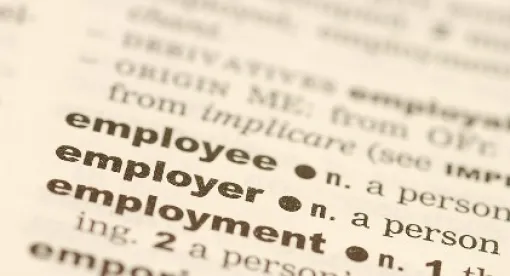The use of restrictive covenants has faced significant criticism lately, including in news articles from prominent media outlets[1] and a report by the U.S. Department of the Treasury[2] casting doubt specifically on the appropriateness of non-competition covenants.
Restrictive covenant agreements are traditionally governed by state law and thus subject to various jurisdictions’ rules regarding enforceability. They stand on a different footing than most other contracts, in that their enforcement is typically susceptible to a court’s equitable powers, and may not always be enforced as written, if at all. States differ on whether their courts will deny enforcement of a restrictive covenant deemed overbroad as written by the parties or instead modify it to meet the particular state’s standards of enforceability. In those states where such modification is authorized, a court may strike out (or “blue pencil”) certain terms of the covenant and, in a few states, even insert or modify provisions as deemed necessary to validate the covenant (known as “equitable reformation”).
Recent Court Decisions Involving Blue-Penciling
New York courts had traditionally been receptive to blue-penciling an overbroad restrictive covenant. However, in a recent case, the Court of Appeals (New York State’s highest court) emphasized that under New York law, restrictive covenants will not be blue-penciled if there is “coercive use of dominant bargaining power” to achieve their formation.[3]
In Brown & Brown, the Court of Appeals remarked that because the employee was unemployed at the time that she signed the covenant, there were questions over whether that “caused her to feel pressure to sign the agreement rather than risk being unemployed.”[4] The Court of Appeals further noted that a “case-specific analysis” is necessary to determine these surrounding circumstances and found factual issues precluding summary judgment there.
In January 2016, Brown & Brown was applied when a New York Supreme Court, in Aqualife Inc. v. Leibzon, found such unequal bargaining power in the creation of an overbroad restrictive covenant and refused to blue-pencil it, granting instead defendants’ motion to dismiss.[5]
New York is not alone in its judicial philosophy regarding the blue-pencil doctrine. In late October 2015, an Illinois Appellate Court refused to judicially modify overbroad restrictive covenants because the court deemed their deficiencies “too great to permit modification.”[6] Even though that agreement contained a clause allowing for judicial modification, the court refused to do so, explaining that “[i]n determining whether modification is appropriate, the fairness of the restraints contained in the contract is a key consideration.”[7]
At least one other state has taken a dim view lately of a non-compete agreement in which the parties agreed to allow a court to modify any provision deemed overbroad. In Beverage Sys. of the Carolinas, LLC v. Associated Bev. Repair, LLC, the Supreme Court of North Carolina recently refused to modify an overbroad agreement, notwithstanding the agreement containing a clause empowering the court to rewrite the offending provisions.[8] The court determined that such a clause was in violation of the state’s “strict blue-pencil” doctrine, which only allowed for provisions to be stricken and did not allow for any equitable reformation.[9]
While there appears to be a growing hesitancy among courts to blue-pencil or equitably reform agreements that may be overbroad, some recent decisions show that there is still a place for the practice. In Turnell v. CentiMark Corp., the U.S. Court of Appeals for the Seventh Circuit recently applied Pennsylvania law to modify an overly broad agreement.[10] Similar to New York law, the Seventh Circuit initially noted that where “the restrictions are so ‘gratuitous[ly]’ overbroad that they ‘indicate[] an intent to oppress the employee and/or to foster a monopoly,’ a court of equity may refuse to enforce the covenant at all.”[11] But generally, “absent bad faith, Pennsylvania courts do attempt to blue-pencil covenants before refusing enforcement altogether.”[12]
What Employers Should Do Now
-
As has always been the case, look at the provisions within your restrictive covenants to ensure that they are tied to protecting a legitimate business interest and that their scope is narrowly tailored such that they would not be viewed as oppressive or overreaching.
-
Consider the interaction between the forum selection clause, the choice-of-law provision, and the covenant itself in terms of what state law might apply to any potential blue-penciling or equitable reformation.
-
In states that allow for equitable reformation, make sure that the agreement itself indicates that it can be modified by a court.
[1] See Clare O’Connor, Does Jimmy John's Non-Compete Clause For Sandwich Makers Have Legal Legs? Forbes (Oct. 15, 2014), http://www.forbes.com/sites/clareoconnor/2014/10/15/does-jimmy-johns-non-compete-clause-for-sandwich-makers-have-legal-legs/; see also Steven Greenhouse, Noncompete Clauses Increasingly Pop Up in Array of Jobs, New York Times (June 8, 2014) http://www.nytimes.com/2014/06/09/business/noncompete-clauses-increasingly-pop-up-in-array-of-jobs.html?_r=0.
[2] Karen Dynan, The Economic Effects of Non-compete Agreements, U.S. Department of the Treasury (3/31/2016), https://www.treasury.gov/connect/blog/Pages/The-Economic-Effects-of-Non-compete-Agreements-.aspx. Report available at https://www.treasury.gov/resource-center/economic-policy/Documents/UST%20Non-competes%20Report.pdf.
[3] Brown & Brown Inc. v. Johnson, 25 N.Y.3d 364, 371 (2015).
[4] Id. at 372.
[5] Aqualife Inc. v. Leibzon, 2016 N.Y. Misc. LEXIS 6, 2016 NY Slip Op 50002(U), 1, 50 Misc. 3d 1206(A) (N.Y. Sup. Ct. Jan. 5, 2016).
[6] AssuredPartners Inc. v. Schmitt, 2015 IL App. (1st) 141863 (Ill. App. 2015).
[7] Id. at ¶ 51.
[9] Id. at *17.
[10] Turnell v. CentiMark Corp., 796 F. 3d 656, 664 (7th Cir. 2015).
[11] Id. at 663 (citations omitted).
[12] Id.



 />i
/>i

